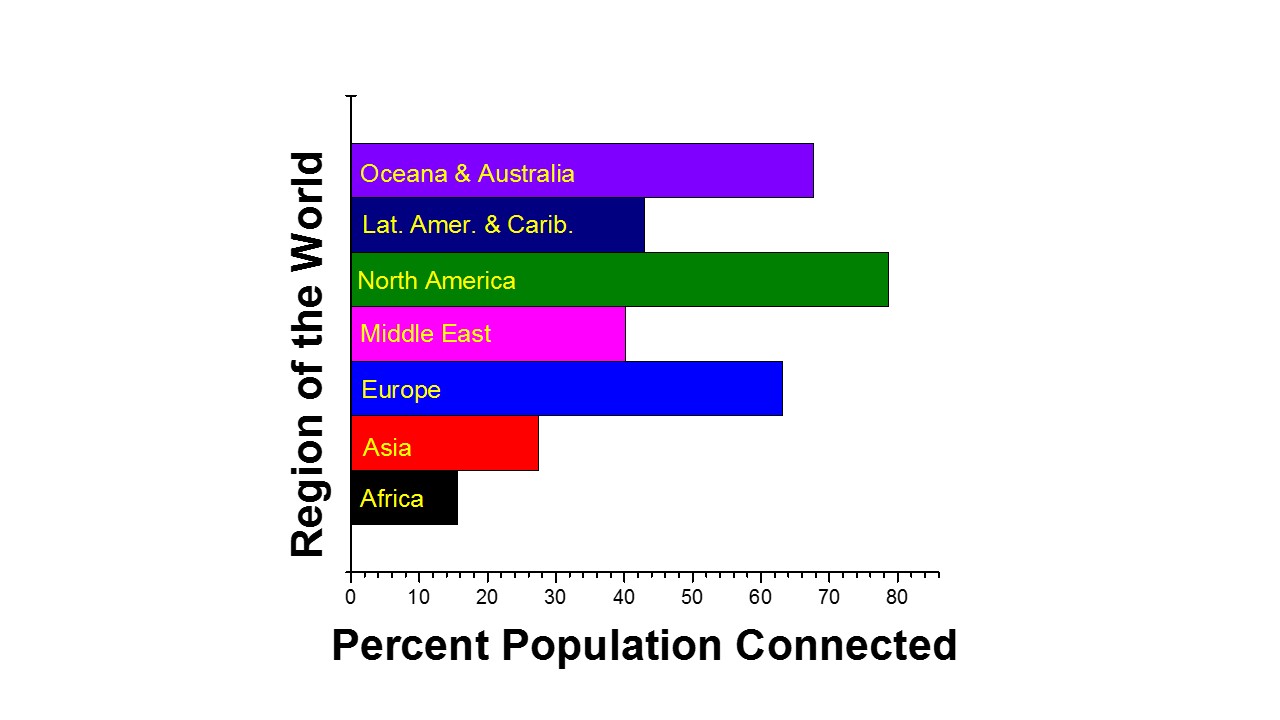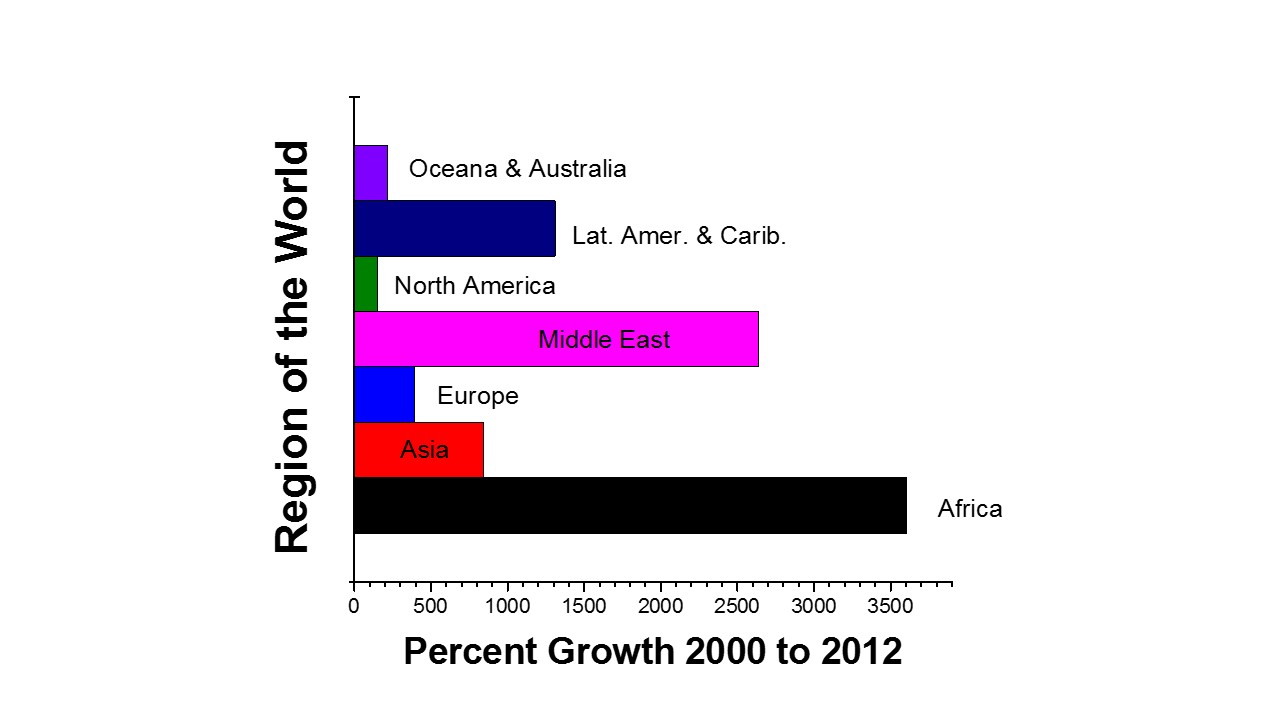
Figure 1 – Percent population connected to the internet by major geographic region, data from Internet World Stats.
I’m afraid that I have boxed myself into a bit of a corner. In my last two blogs I discussed the democratizing effects of the internet, focusing on book and photography publishing. I have a couple of readers that are bound to challenge me with the question: “Exactly how democratic?” So, while this blog is meant to be primarily about photography, I feel that I have to defend myself with some statistics about the internet.
An institution isn’t democratic unless there is substantial enfranchisement. So if the internet is excluding vast numbers of people by either political or economic suppression it fails to be democratic. So what about the internet?

Figure 2 – Internet usage growth between 2000 and 2012 by major geographical region. Data from Internet World Stats.
According to Internet World Stats there are currently (2012) 7,017,846,922 people in the world, of which 2,405,518,376 people or 34.3% are connected to the internet. This has grown by 566.4% in the last twelve years. This number, of course, does not tell the whole story. So, in Figure 1, I show internet penetration of the population for the world’s major geographic regions and in Figure 2 the rate of growth for these regions over the past twelve years.
I think that the story told by these statistics already indicates high penetration of the population and tremendous growth especially in regions that are lagging the major internet centers. At a certain level access, indeed, represents enfranchisement and a democratizing effect – access to publish and access to download. From the fundamental viewpoint of “knowledge is power,” this is a positive story. The subtler and, perhaps profounder, questions of the quality of the information that people have access to, whether there is government or other censorship of free expression, and whether information is otherwise controlled or manipulated is a wholly different issue. We have to at least have faith that access is an important first step.
